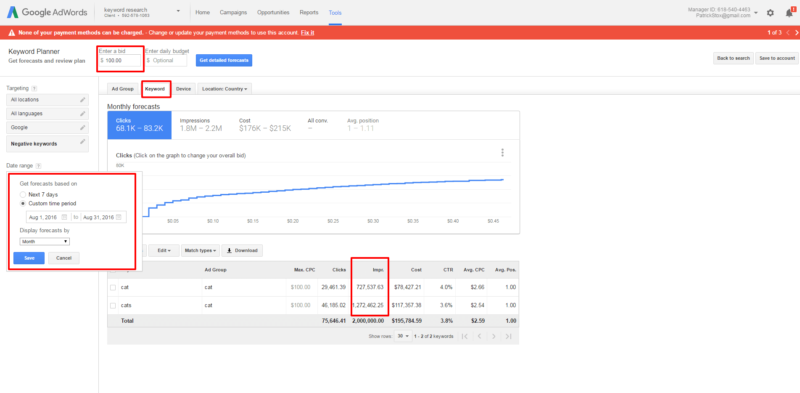How to get the old Google Keyword Planner volume data
Search volume estimates from the Google Keyword Planner have been off recently due to close variants. Columnist Patrick Stox shows how to get this data back.

Back in June, the AdWords Keyword Planner started displaying the same volume of searches for keywords that were similar. Search Engine Land reported on the anomalies and asked Google about it but didn’t receive a response at the time. Ginny Marvin speculated, and now an AdWords representative has confirmed, that this was caused by close variants.
Hi there, terms that are close variants of each other will show the same volumes within the Keyword Planner. -Mitch
— Google Ads (@GoogleAds) July 21, 2016
Many people and tools are overestimating search volume by adding together the results that AdWords Keyword Planner has already grouped, effectively doubling or tripling volume estimates.
If you’re like me, you want to see more data, not less. You want to be able to determine which version of a keyword you want to target. You know that even small changes to a word can mean huge changes to intent and value.
How do we get our data back?
Using Ginny’s example of “cat” and “cats,” we can see that Google Keyword Planner shows us average monthly searches of 3,350,000 for each. Add these to the plan and review plan, or, alternatively, just start with “Plan your budget and get forecasts” instead of “Find new keywords and get search volume data.”
When you are reviewing the plan, you need to change the date range, enter a bid and click on the keyword tab, as shown below. You can also adjust the match type to your preference.
You will now have impression volume for the individual keywords. Note that this may include occasions when you would also be shown on page 2 of the search results. The caveat to all of this is that you have to know the different variations that you want to see the data for, and I don’t believe there’s a good way to get all of them.
Why should you care?
Simply put, not all words are created equal. They don’t have the same intent or the same value. A recent example from work would be the differences for “api test,” “api tester” and “api testing.” Even AdWords shows vast differences in the search volumes and cost per click.
Unless, of course, you’re relying on Keyword Planner now…
On a side note, check out Daniel Gilbert’s AdWords script that gets rid of close variants. The fact that this even exists should tell Google that this change was a bad idea. It was optional before it was forced on paid search marketers, and now it’s being forced on those doing research for organic as well.
Contributing authors are invited to create content for Search Engine Land and are chosen for their expertise and contribution to the search community. Our contributors work under the oversight of the editorial staff and contributions are checked for quality and relevance to our readers. The opinions they express are their own.
Related stories



